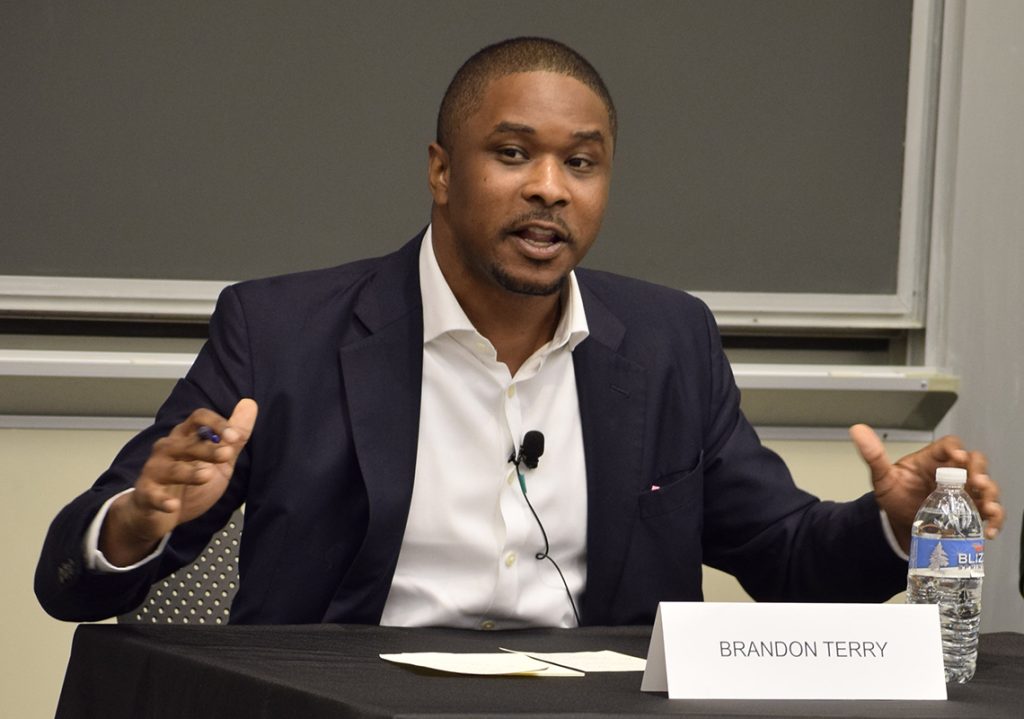Boston College Law School lost one of its brightest minds when Professor Catharine Wells passed away on March 7, 2022. A nationally recognized scholar of legal philosophy and an outspoken proponent of legal pragmatism, Wells’ approach to pedagogy often involved using feminist legal theory and critical race theory to illustrate the tangible impact that laws have on American society.
In remembrance of the lasting impact that she made on Boston College Law School and the wider world of legal academia, the faculty hosted the first Catharine Wells Memorial Lecture in Jurisprudence on February 26. The inaugural speaker was Professor Brandon Terry, the John L. Loeb Associate Professor of the Social Sciences at Harvard University and co-director of the Institute on Policing, Incarceration, and Public Safety at the Hutchins Center for African and African American Research.
“[Professor Wells] kept a watchful, critical eye on the direction of American democracy during her long tenure here,” according to Dean of Faculty and Global Programs and Professor Katharine Young by way of introducing the series. “I think she would be absolutely delighted with our choice” of speaker, she said.
For his part, Terry was effusive in his praise for Wells’ approach to pedagogy. “In a time when combative energies are directed toward campuses like this, I think it’s very courageous to hold space for the kinds of questions that she pursued,” he eulogized.
Both Terry and Wells were concerned with the “inherently normative character” of historical legal analysis; legal and political arguments are often underpinned by references to history—academics are concerned with precedent and “the way things have always been”—that merely mask a web of normative and evaluative judgments. Terry’s research is largely aimed at exploring the civil rights movement and African American political thought. His upcoming book, The Tragic Vision of the Civil Rights Movement: Political Theory and the Historical Imagination, formed the basis of the lecture.
In the book, Terry “draws on the new historiography of the long civil rights movement to recover those innovative dimensions of the struggle that are obscured by the easy familiarity and optimism of the romanticized history [of the movement].”
Much of the lecture was concerned with the liberal conception of the civil rights movement as an incremental and, thus, more palatable approach to national consensus. Leaders of the movement like Martin Luther King, Jr. and events like the March on Washington have been “idealized” and “romanticized,” according to Terry, who pointed to many of Dr. King’s lesser known (and, perhaps, less popular) stances on American imperialism, capitalism, and militarism as examples of erased history. This conception of our history betrays the “explosive and divisive disagreements” and authentic radicalism that undergirded the civil rights movement in reality, he argued.
“Racism, King argued, and its perennial ally in economic exploitation provide the key to understanding most of the “international complications” of his generation; he saw the US and many of its allies engaged in racism and its more sophisticated form of neocolonialism, and he thought it revealed a deeper malady within the American spirit,” Terry concluded.


